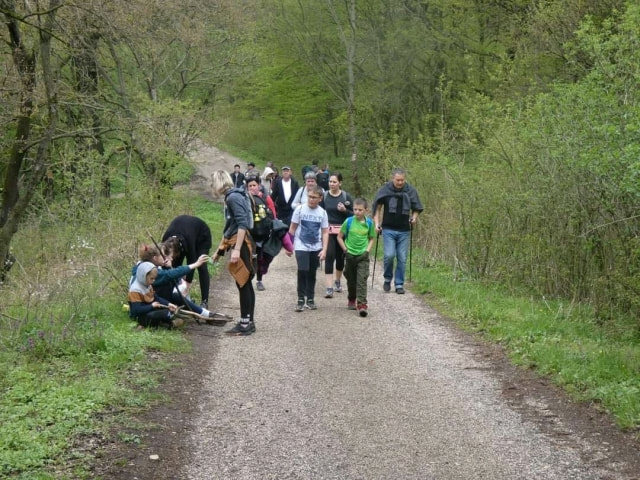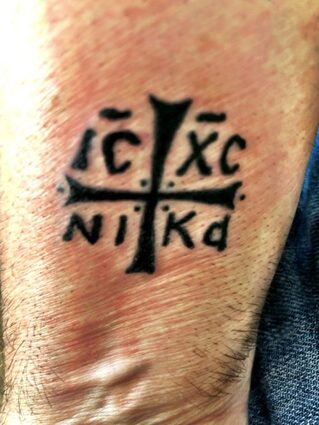Several Turul monuments exist in Hungary today. Among the most prominent is the Turul statue perched upon the summit of the Gerecse Mountains in the former mining city of Tatabánya, 55 kilometers west of the Budapest. The statue is visible from the main highway leading into Budapest, and I have seen it from a distance the dozen or so times I have traveled east toward the capital.
Last weekend, the little hiking club that has formed in my village traveled to Tatabánya to hike in the Gerecse Mountains, which gave me the opportunity to finally see the monument up close. The hike itself was splendid. The trees here are sprouting, but the new leaves have yet to cast the forest floor in shade, which allows the young shoots, plants, and flowers to emerge and cover the forest floor in a fresh and comforting velvety green.
The Turul monument itself is rather impressive, but given the current state of the world, it left no deep impression on me as a national or historical symbol of Hungary.
I was born in the United States, spent a great deal of my life in Canada, later lived and worked in the US again, and moved to the northeast of England for a short time. I have lived in Hungary, which is the country of my heritage, since 2015. Like the ancient Magyars, I have spent most of my life wandering in search of a homeland. Though I had not actively followed a massive bird of prey carrying a sword, I realized that I had always been waiting for a sword to drop somewhere in this world to indicate the place for me to "be".
Well, it appears the sword has indeed dropped. My current personal circumstances and the place in which I find myself have become home. I will wander no more. But the dropped sword has little to do with grand historical notions of nation or culture and everything to do with small personal notions of place and relationships. Whatever I have left to learn in this life will be learned in the place I am now.
When my life in this world ends, I will wait for Christ to pick up the sword. The place in which He chooses to drop it will indicate my eternal homeland -- the place I truly yearn to "be".








 RSS Feed
RSS Feed

